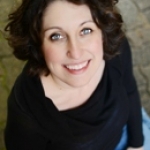Cultural equity. Two simple words with seemingly clear, every day meanings. Merriam-Webster confirms the plainness of these words. Cultural: "Of or relating to a particular group's habits, beliefs, traditions, etc.," or "of or relating to the fine arts (such as music, theater, painting, etc.)" And equity: "justice or fairness in the way people are treated, " or "freedom from bias or favoritism." So putting these words together, we've got a concept that speaks about fairness and justice in the realm of arts and culture, about the arts treating people without bias or favoritism.
The Statement on Cultural Equity being released by Americans for the Arts addresses this issue of fairness and justice in the arts in a beautifully simple and straightforward way. Fairness is something we value as Americans, and yet injustice is rife within our nation, and the same power structures that perpetuate inequity in the larger society are present in the cultural sector. We shouldn't be surprised by this and yet, quite often, we are. Aren't we, as workers in the arts, all liberal-minded, good people?
Read More


































